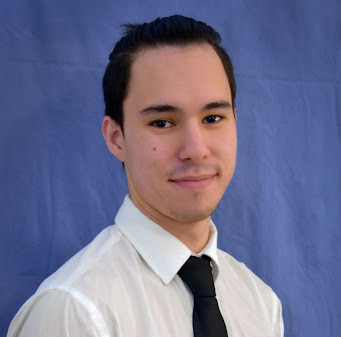This Q&A highlight features Zion Leonahenahe Basque, recipient of an Honorable Mention in the 2021 CRA Outstanding Undergraduate Researchers award program. A Fall 2020 graduate from Arizona State University (ASU), Zion continues his studies at ASU as a Ph.D. student in computer science. This interview has been edited for length and clarity.
What originally influenced you to consider doing research?
As a freshman, I joined ASU’s hacking club, then known as pwndevils, because I read that they explored how programs work from the lowest level, and I wanted to learn that! I started playing with the club’s team in Capture the Flag (CTF) competitions, where you solve cybersecurity challenges to get hidden information, or “flags.” A professor on the team, Dr. Yan Shoshitaishvili, introduced me to research in systems security, showing me how their research gave them the upper hand in CTFs. I had only heard of research being used for hypothetical things, so it was cool to see him directly applying research to this real-world battle of hackers. Later that year, Dr. Shoshitaishvili and Dr. Adam Doupe invited me to join their research lab. I was thrilled to learn how to become a better ethical hacker.
What research projects did you work on as an undergraduate?
I was interested in binary analysis, which focuses on automatically understanding programs distributed as binary code without source code or debugging information. That’s how many programs are distributed on the Internet, and this research helps catch malicious programs. My professors gave me a list of project ideas, and I picked ones that seemed challenging, broadly impactful on society or hackers, and would do more good than harm. My research specifically focused on understanding control flow in a program, which is the order that instructions and function calls get executed.
What challenges did you face throughout the research process? What did you learn from them?
Research was harder than anything I had ever done before. My first research project ended in what I considered a failure, but what Erik, a senior Ph.D. student in the lab and my mentor, called a learning experiment. I explored an idea that we hoped would improve the state-of-the-art in binary analysis, but after experimenting for a year, I had compelling evidence that our methodology didn’t work as well as we had hypothesized.
It took awhile for me to be able to say, “it’s okay I didn’t publish an idea I spent a long time on.” The process taught me a lot and really made me think about why I want to be a scientist. I do it because I love this field, and I want to help people with my contributions. Erik always encouraged me to focus on balance and self-growth in research. Without Erik, I never would have gone to grad school.
How has your personal identity/background impacted your research experiences?
I’m a Native Hawaiian, born and raised in a town of about 50 people. Neither of my parents have a college degree. I’m the first in my family to do a lot of things: go away for school in the continental U.S. (referred to as the Mainland), get a bachelor’s, pursue a STEM field, and go to graduate school. I often find it hard to relate with my colleague’s backgrounds and feel a step behind, since many of their families have been in academia and/or STEM for years.
Although I felt disadvantaged, I’m proud to be Hawaiian. And I’m grateful to have understanding and supportive professors who understand where I began and how hard it’s been to get here.
How has participating in research shaped your professional path?
Participating in research has directed my career into academia. I view myself as an ethical hacker turned researcher. I love improving security, and it feels great to tackle truly hard problems. I know it sounds contradictory, but hitting a wall in something so forward-thinking is very dignifying, because I know I’m working on something meaningful. Research has inspired me to think bigger, persevere, and make education more available to the underprivileged, like my fellow Native Hawaiians.
Do you have any advice for other undergraduate students looking to get into research?
First, don’t be afraid to take a risk by asking to work with a professor. Second, especially for minorities, it may feel like you’re behind everyone else in research. But a lot of times, others feel the same way. You are so important because of the different experiences you bring to the table. Your culture is powerful. Harness it when you think you can’t do it. You got this!
— Edited by Ian Ludden
